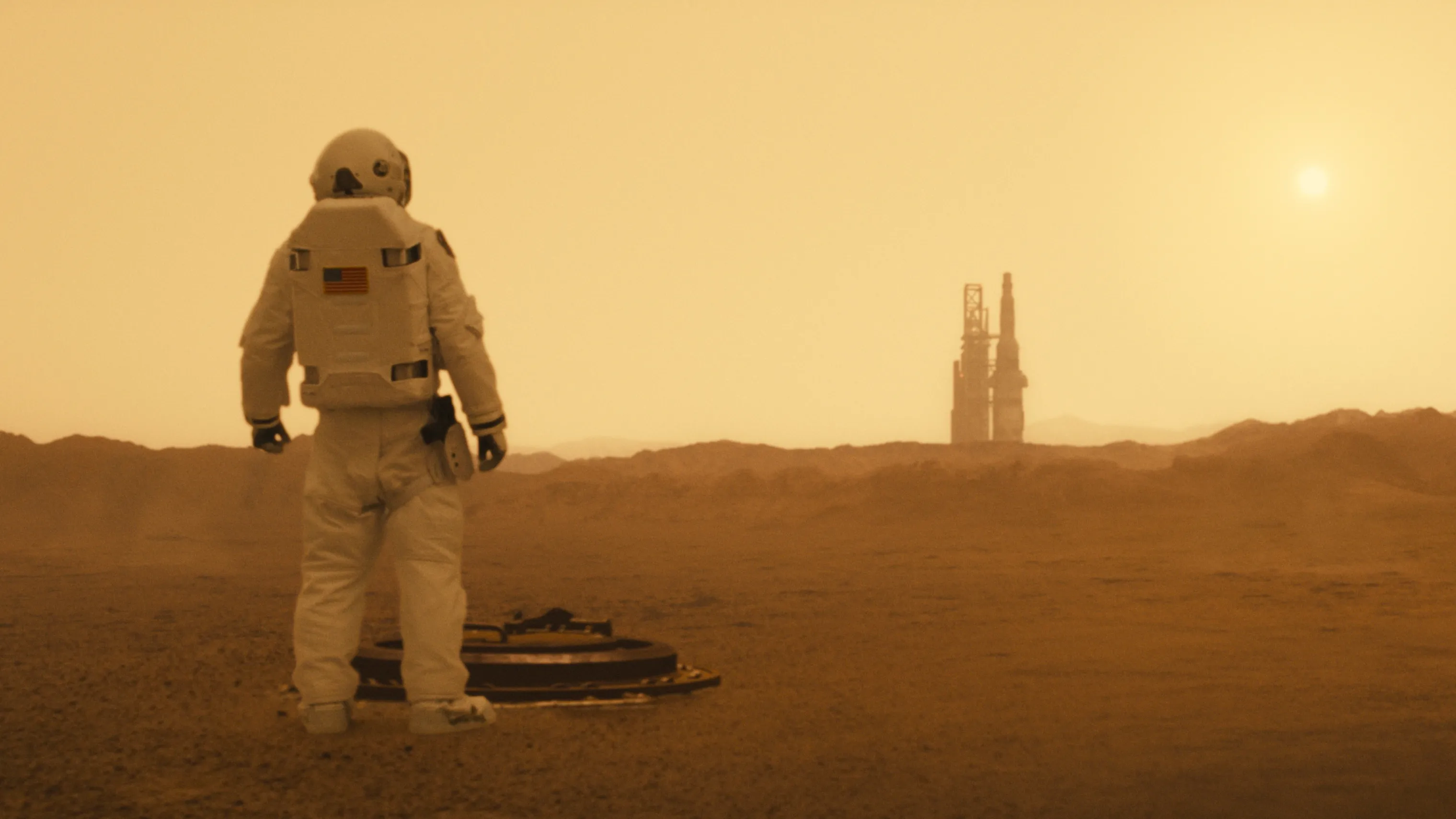Initial reviews were all over the place for 2019’s Ad Astra (a Latin phrase that translates to “to the stars”). I hadn’t seen any of writer/director James Gray’s previous efforts either, so while I was interested in seeing the movie just based on the trailer and general premise, I had fairly low expectations. When I finally checked out the 4K UHD, though, I ended up loving it. Contemplative, but visually stunning, I can see how it’s not a film for everyone. However, I enjoyed every last minute. September 20th sees the film celebrate its 5th anniversary, so let’s take a look back!
In the near future, an organization called SpaceCom (think a more advanced version of NASA) recruits the decorated and almost superhumanly calm Major Roy McBride (an extremely understated Brad Pitt) for a secret mission to Neptune. Authorities have determined that recent deadly power surges are originating from the remote planet, which is also where Roy’s father, Dr H Clifford McBride (Tommy Lee Jones) disappeared decades ago. The elder McBride and his crew were on a mission to detect life outside our solar system, but the military now believes that the doctor has possibly gone insane. In any case, all life on Earth is threatened and Roy is tasked with either stopping his father, if he is the cause, or destroying whatever is causing the surges.
As Roy makes the dangerous journey to the edge of all human knowledge, he also confronts the total of his life’s experiences. It is a search for meaning, both within and without. Small, but significant roles also belong to the late, great Donald Sutherland and Ruth Negga. Liv Tyler shows up here and there but her part is less of a character and more of a symbol.
Gray and co-writer Ethan Gross craft a marriage of 2001: A Space Odyssey and Apocalypse Now. They are obviously interested in presenting a believable deep-space quest. The dangers specific to this particular vision of the future as well as the general ones of space travel feel organic and immersive. Roy is an intensely introspective character. The interior monolog that runs throughout the film never feels intrusive, but Pitt’s careful line delivery conveys existential themes that invite the audience into his flawed and very human experience.
I’ve seen criticisms that the film isn’t totally scientifically accurate but I’m of the opinion that it feels realistic enough. The lensing by Hoyte Van Hoytema along with the effects work are certainly spectacular. As a space junkie, I was enthralled by the shots of lonely ships placed against vast star fields and awe-inspiring shots of Jupiter, Saturn, and Neptune. This is not an action film in any way, but there are several fantastic action sequences. The lunar rover scene and an unwelcome surprise on a derelict vessel are thrillingly presented. Max Richter’s techy and unconventional score hits the right notes for both dread and wonder.
Though every other aspect of the film is almost perfectly executed, the movie rests on Pitt’s shoulders. It is essentially a character piece in disguise with Pitt pulling off a difficult role. Roy seems emotionless, though his thoughts illustrate a man with an active interior life. When the cracks in his façade begin to show, we feel how difficult it is for a person like this to express themselves. I think it’s a bravura performance, but it is one of confident silence and concealed desires.
I fully concede that James Gray’s Ad Astra won’t be for everyone, but I thoroughly enjoy it. The visuals alone are worth the ticket, but Pitt’s unassuming performance is a master class of restraint and understanding. I could nitpick a few elements about the resolution surrounding Roy’s father, but in the end, my issues are inconsequential in the face of everything else that succeeds with the picture. Recommended, with caveats, for fans of the aforementioned films, as well as Sunshine, Gravity, and Interstellar.
Michael Cavender





